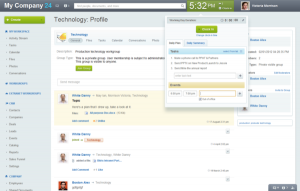Experienced leadership with hands on marketing operations experience matters.
Many marketing teams are preparing to negotiate software contracts that expire on Dec. 31, or are already in the middle of doing so, and this in a climate where marketers are looking for quick wins, and vendors are more eager than ever to secure customer success and loyalty.
How should martech purchase teams negotiate the best deals?
It starts at the top
“We work primarily with global 2000 companies, and 99% of our subscribers think they are behind in technology; that point of view matters, and desperation can seep into your contract negotiations with vendors,” said Tony Byrne, founder of the technology analyst firm Real Story Group, which evaluates martech and CX technologies. “It is not a new story, just one that has been accelerated a lot more during the time of COVID.”
This desperation communicated by enterprise organizations with deep pockets can lead to proposal responses with increased pricing, including dramatic pricing increases on overhead and especially personnel.
“It is important to check in quarterly to make sure you are getting value in the different personnel roles assigned to your account and not just a bunch of overvalued account executives,” said Byrne. “Regardless of the vendor, or how long the relationship, identify what parameters and metrics are driving costs. Once you understand vendor architecture that increases costs, then you can understand the ‘what if’ scenarios and you will get push back from vendors, but that is when you know you are doing your job.”
Keep a close eye on costs
“This is a good time to negotiate with large vendors like Adobe, Salesforce and Oracle, because they are trying to lock in multiyear large contracts to get capital before the end of the year,” said Byrne. “We advise our clients to negotiate hard and use a test-based selection method.”
The test-based selection method not only allows marketers to test the product in the martech stack, but also the integration and support functions. However, the test-based selection method is only the first step, as long-term implementation and integration costs need to be detailed completely before signing any contract. When overlooked, the technical side of the negotiation can end up costing more than the human capital investment.
Marketers should use their internal resources, including the IT department, to get a fresh, unbiased look at what is being charged, the value of product and services received, and where there may be overcharging.
“Many large corporate enterprises end up throwing money at a vendor instead of solving specific problems,” said Byrne. “We are big believers of building internal capacities, and that includes using those internal resources to secure the right elevator clauses without being overcharged.” Elevator clauses put customers on notice of future increases in rates.
Experience counts
Marketing leaders who have actually created RFPs and worked in daily operations positions for at least five years before ascending into management make the best negotiatiors for martech contracts, according to Byrne’s experience and client history.
Experienced marketing leaders will know how to use key internal stakeholders to objectively review proposals and identify how they fit into budgets and operations. It’s advisable to take a long-term view of the roadmap and costs for the martech stack, to the extent that’s possible in today’s rapidly changing business environment. Areas of common overspend Byrne has seen include CDP and WCM licensing.
“Marketers who have been in the trenches for five to 10 years can look at vendors with more scrutiny due to past experiences, and know they are not looking at anything with rose-colored glasses,” said Byrne.
Revisiting your RFP
If you have already started the RFP process for 2021 vendors, it is never too late to correct any oversights that may lead to higher pricing. Use competitor pricing to gain leverage with current vendors, and shorten contracts when needed to improve negotiations.
Byrne recommends getting bid prices from competitors first, then returning to current vendors after you have leverage to negotiate. Where possible, start at least six or nine months before the end of the contract to identify ways to minimize cost, including an early renewal discount that can be spread over multiple years.
“It is never too late to negotiate,” said Byrne. “At minimum you will not have an increase in rates; let the vendors make their profits off someone else. Enterprise marketers have a lot of resources, so make sure you use them all to get the best deal possible.”
This story first appeared on MarTech Today.
Marketing Land – Internet Marketing News, Strategies & Tips
(12)
Report Post








